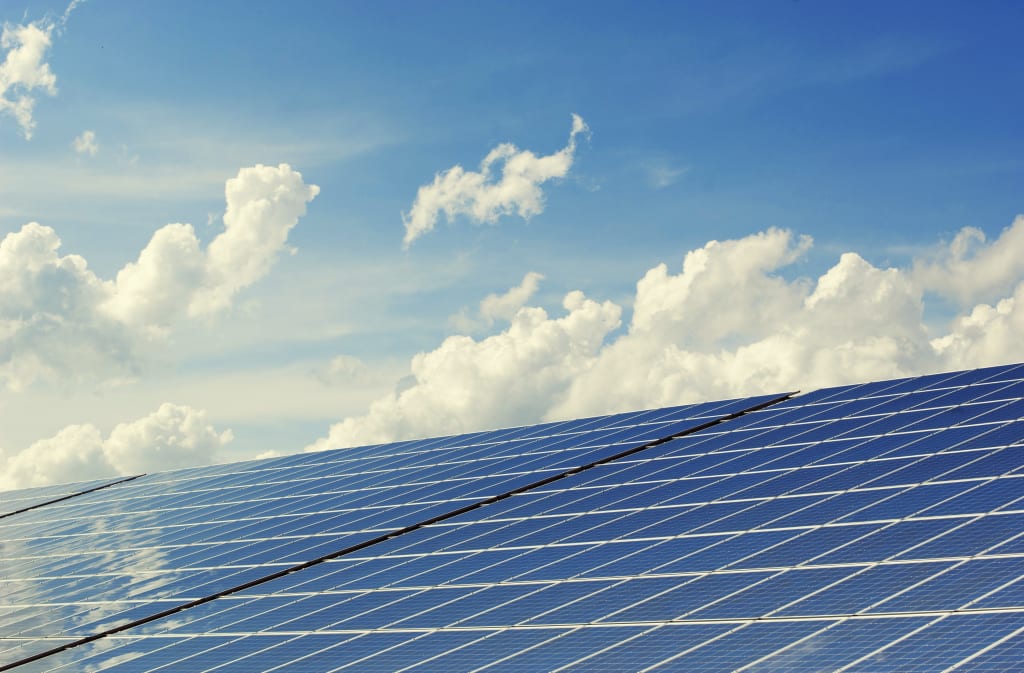Renewable energy of Earth
re use it as a power

Renewable energy has become an increasingly important topic in recent years as we seek to reduce our reliance on fossil fuels and transition to a more sustainable energy future. In this article, we will explore what renewable energy is, the different types of renewable energy sources, and the benefits and challenges of using renewable energy.
What is Renewable Energy?
Renewable energy is energy that comes from natural sources that are replenished over time, such as the sun, wind, water, and geothermal heat. Unlike fossil fuels, which are finite resources that are becoming increasingly scarce and expensive, renewable energy sources are abundant and can be harnessed without depleting natural resources.
Types of Renewable Energy Sources:
There are several types of renewable energy sources, including:
Solar energy: Solar energy is generated by capturing the energy from the sun's rays through solar panels. It is a clean and renewable source of energy that is becoming increasingly cost-effective.
Wind energy: Wind energy is generated by capturing the kinetic energy of the wind through wind turbines. It is a clean and renewable source of energy that is particularly suitable for coastal areas and other windy locations.
Hydro energy: Hydro energy is generated by harnessing the power of moving water, such as waterfalls or rivers, through hydroelectric dams. It is a clean and renewable source of energy that is particularly suitable for areas with abundant water resources.
Geothermal energy: Geothermal energy is generated by tapping into the natural heat of the earth's core through geothermal power plants. It is a clean and renewable source of energy that is particularly suitable for areas with geothermal activity.
Benefits of Using Renewable Energy:
There are several benefits of using renewable energy, including:
Environmental benefits: Renewable energy sources produce little to no greenhouse gas emissions, reducing our reliance on fossil fuels and helping to mitigate climate change. Additionally, they do not produce harmful pollutants that can harm the environment.
Economic benefits: Renewable energy sources are becoming increasingly cost-effective, with the cost of solar and wind energy falling rapidly in recent years. Additionally, renewable energy can provide job opportunities and boost local economies, particularly in rural areas.
Energy security: Renewable energy sources are abundant and do not rely on finite resources, reducing our dependence on foreign energy sources and increasing our energy security.
Challenges of Using Renewable Energy:
There are also several challenges associated with using renewable energy, including:
Intermittency: Some renewable energy sources, such as solar and wind energy, are intermittent and cannot be relied upon to provide consistent energy output. This can be addressed through energy storage systems or through a combination of different renewable energy sources.
Infrastructure challenges: The development and deployment of renewable energy infrastructure, such as wind turbines and solar panels, can face challenges such as land use conflicts and permitting processes.
Energy storage: Energy storage systems are needed to store excess energy generated by renewable sources for times when energy demand exceeds supply. However, current energy storage technology is still relatively expensive and not yet widely deployed.
In conclusion, renewable energy has the potential to provide significant environmental, economic, and energy security benefits. While there are challenges associated with using renewable energy, such as intermittency and infrastructure challenges, these challenges can be addressed through continued investment in research, development, and deployment of renewable energy technologies. By transitioning to a more sustainable energy future, we can reduce our dependence on fossil fuels and help mitigate the impacts of climate change.
Here are some additional points to consider when discussing renewable energy:
Distributed energy: Distributed energy refers to the generation of electricity from small-scale renewable energy sources, such as rooftop solar panels, that are located close to where the electricity is used. Distributed energy can help to reduce energy transmission losses and increase energy independence for individual households and businesses.
Energy efficiency: Improving energy efficiency is an important part of transitioning to a more sustainable energy future. By reducing energy consumption through energy-efficient buildings and appliances, we can reduce the demand for energy and the need for additional energy generation.
Policy support: Government policies, such as renewable energy targets and incentives for renewable energy investment, can help to drive the transition to renewable energy. Policy support can also help to address some of the challenges associated with renewable energy deployment, such as permitting and financing.
Public opinion: Public opinion can play an important role in driving the transition to renewable energy. By raising awareness about the benefits of renewable energy and encouraging individual action, public opinion can help to create demand for renewable energy and support for policy change.
Technological innovation: Continued technological innovation is needed to further reduce the cost of renewable energy and address challenges such as intermittency and energy storage. Research and development into new renewable energy technologies, such as wave and tidal energy, can also help to diversify our energy mix and increase energy security.
Overall, renewable energy has the potential to transform our energy system and create a more sustainable
About the Creator
Hamza Chaudhary
Hamza Saeed is a talented content writer with a passion for crafting engaging stories. With 7 years of experience in the industry and has skills in creating compelling copy for a variety of mediums, including blogs, social media, marketing.






Comments
There are no comments for this story
Be the first to respond and start the conversation.